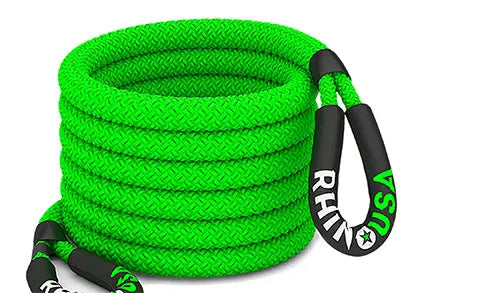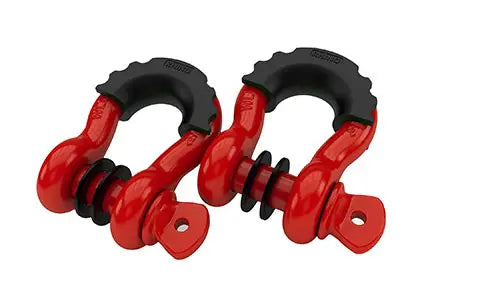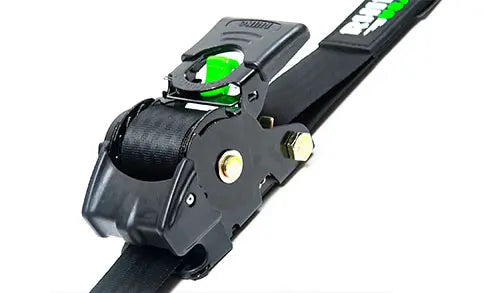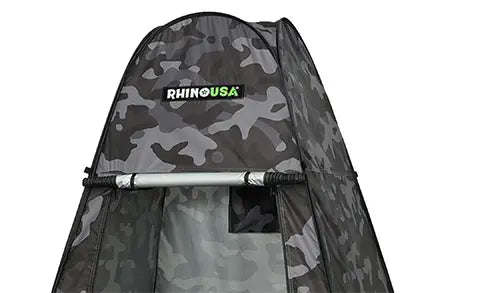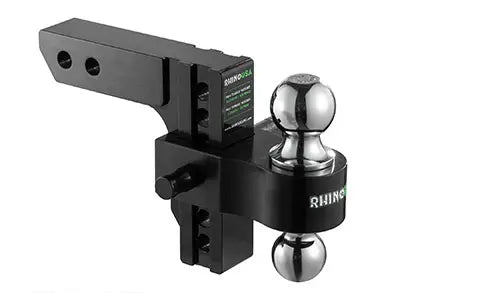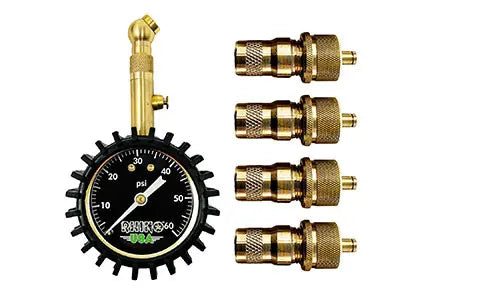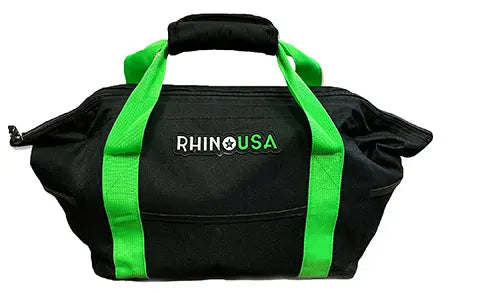Trailer hitches can produce various noises while you're towing, which might catch you off guard. These sounds range from minor squeaks to more pronounced rattles or bangs.
Common noises include:
- Squeaking or creaking
- Rattling or clanking
- Popping or clicking
- Grinding or scraping
Most of these sounds stem from friction between moving parts or loose connections within your hitch system. While some noises are normal, others may indicate potential issues that require attention.
Identifying the source of the noise is crucial for maintaining a safe towing setup. Different sounds can point to specific problems:
- Squeaking often results from friction between the hitch ball and trailer coupler.
- Rattling may indicate a loose connection in the receiver or ball mount.
- Popping could suggest weight distribution issues or suspension problems.
Your trailer's suspension is a frequent noise culprit, especially under heavy loads. The more weight you're hauling, the harder your suspension works, potentially leading to increased noise levels.
To address hitch noises effectively, you'll need to pinpoint their origin. This allows you to determine whether the sound is a normal part of towing or a sign that your setup needs maintenance or adjustment.
The Role of Hitch Types in Causing Noise
Different trailer hitch designs can produce varying levels and types of noise. Ball mount hitches are common and may create squeaking or rattling sounds due to friction between the ball and coupler.
Pintle hitches, with their hook and ring design, can generate clanking noises as the components move against each other. These are often used for heavy-duty applications but tend to be noisier than ball mounts.
Fifth wheel hitches, typically found on larger trucks and RVs, may produce rumbling or creaking sounds. This can occur as the kingpin moves within the hitch plate during turns or over bumpy terrain.
Weight distribution hitches can add extra noise sources. The spring bars and chains in these systems may rattle or clank, especially if not properly adjusted or lubricated.
To reduce noise across hitch types:
- Apply lubricant to moving parts
- Check for loose bolts or connections
- Use anti-rattle devices or stabilizers
- Ensure proper hitch and trailer alignment
Rhino USA offers heavy-duty accessories designed to minimize hitch-related noises. Their products can help secure connections and reduce unwanted movement, leading to a quieter towing experience.
Loose Connections: A Common Culprit
Loose connections are often the primary cause of noise from your trailer hitch. When components aren't properly secured, they can rattle and clank as you drive.
The most common culprits include:
These issues can lead to irritating sounds and potentially dangerous situations on the road.
To address loose connections, start by inspecting your hitch setup. Check that the hitch ball is tightly secured to the ball mount. Ensure the coupler is properly latched and tightened onto the ball.
Consider using high-quality hitch pins and locks to secure your setup. Rhino USA offers durable options that can significantly reduce movement and noise.
An anti-rattle hitch tightener can be a game-changer for quieter towing. This device helps eliminate play between the receiver and hitch, reducing vibrations and noise.
Regular maintenance is key to preventing loose connections. Periodically check and tighten all components of your hitch system. Lubricate moving parts to reduce wear and tear.
By addressing loose connections promptly, you'll enjoy a quieter, safer towing experience. Invest in quality equipment and perform regular checks to keep your trailer hitch in top condition.
Worn Out Components and Trailer Sway
Worn components in your trailer hitch can lead to annoying noises and potentially dangerous sway. Ball mounts and couplers are particularly susceptible to wear over time.
A loose or worn ball mount may rattle in the receiver, creating a clunking sound as you drive. This play can also contribute to trailer sway, especially at higher speeds or in windy conditions.
Couplers that have excessive wear may not grip the ball tightly, leading to a loose connection. This can cause both noise and instability while towing.
Other worn components to check:
- Sway control devices
- Weight distribution systems
- Safety chains
- Receiver pins and clips
Regular inspection of these parts is crucial for safe towing. Replace any components showing significant wear or damage.
To reduce noise and improve stability, consider upgrading to high-quality towing accessories. Durable options like those from Rhino USA can provide a tighter, quieter connection and help minimize sway.
Proper maintenance and timely replacement of worn parts will ensure a smoother, safer towing experience. Don't ignore unusual noises or instability - address them promptly to prevent more serious issues down the road.
Metal-on-Metal Contact and Grease
Trailer hitch noise often stems from metal-on-metal contact between the hitch ball and trailer coupler. This friction is a normal part of your weight distribution hitch's operation.
To reduce squeaking, apply lubricant to the hitch ball. Effective options include:
- Liquid Wrench White Lithium Grease
- Reese Hitch Ball Lube
- Valvoline General Purpose Grease
A generous amount of grease on the ball can significantly decrease noise without affecting the hitch's functionality. Regular lubrication also extends the life of your hitch components.
For other metal-on-metal contact points, inspect and lubricate as needed. Pay attention to:
- Chain connections
- Spring bar attachments
- Receiver and shank interfaces
Quality parts play a crucial role in minimizing noise. Well-machined, properly fitted components reduce unwanted movement and friction. If you notice persistent noise despite lubrication, consider checking for wear or loose fittings.
Remember, some noise during turns is normal due to the hitch's design. However, excessive or unusual sounds may indicate a need for maintenance or part replacement.
The Impact of Terrain on Trailer Hitch Noise
Rough or uneven terrain can significantly increase the noise from your trailer hitch. As you navigate bumpy roads, the constant jostling amplifies any existing looseness or wear in the hitch components.
Unpaved surfaces like gravel or dirt roads are particularly problematic. The irregular surface causes more vibration, which can lead to increased rattling and banging from the hitch assembly.
Steep inclines and declines also affect hitch noise. When ascending or descending hills, the weight distribution shifts, potentially causing more movement and noise at the connection point between your vehicle and trailer.
Common terrain-related noise sources:
- Potholes and bumps
- Gravel or dirt roads
- Steep hills
- Uneven surfaces
To minimize terrain-induced hitch noise:
- Regularly inspect and tighten all hitch components
- Use a weight distribution system for better stability
- Consider adding anti-rattle devices to your setup
- Adjust your driving speed on rough roads
Remember that while terrain can exacerbate hitch noise, it's often a sign to check your equipment. Regular maintenance and proper setup can help reduce unwanted sounds, even on challenging surfaces.
Trailer Load Distribution and Noise
Proper weight distribution in your trailer is crucial for reducing hitch noise. When the load is unevenly distributed, it can cause excessive bouncing and movement, leading to increased noise from the hitch.
To minimize noise, ensure your trailer's tongue weight is 10-15% of the total trailer weight. This balance helps maintain stability and reduces stress on the hitch components.
Using high-quality tie-down equipment like Rhino USA ratchet straps can significantly impact noise levels. These straps help secure the load, preventing shifting during travel.
Tips for proper load distribution:
- Place heavier items over the trailer axles
- Distribute weight evenly from side to side
- Secure all items to prevent movement
By following these guidelines, you'll reduce trailer bounce and minimize hitch noise. Remember to check your load distribution before each trip to ensure optimal performance and safety.
Regularly inspect your hitch components for wear or damage. Loose or worn parts can contribute to increased noise levels. Lubricate moving parts as recommended by the manufacturer to keep your hitch operating smoothly and quietly.
When Noise Signals a Bigger Problem
Persistent or unusual noises from your trailer hitch can indicate more serious issues that require attention. Grinding or metal-on-metal sounds may suggest worn components or improper alignment.
Loud popping when turning could mean your weight distribution system needs adjustment. Check the stabilizer bars and consider adjusting their tension or position.
Rattling noises might point to loose connections. Inspect your hitch pin, ball mount, and safety chains for proper tightness. Ensure all bolts and nuts are secure.
Clunking sounds during acceleration or braking may indicate excessive play in the hitch system. This can be dangerous and requires immediate inspection.
Look out for:
- Rust or corrosion on hitch components
- Cracks or deformations in the hitch receiver
- Excessive movement between the ball and coupler
- Worn or damaged anti-rattle devices
If you notice any of these issues, it's time to replace affected parts. Regular maintenance and timely replacements ensure your safety on the road.
Consider upgrading to high-quality towing equipment for improved performance and longevity. Proper installation and periodic checks will help prevent noise issues and keep your towing setup in top condition.
